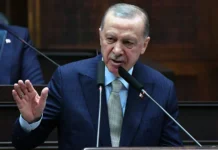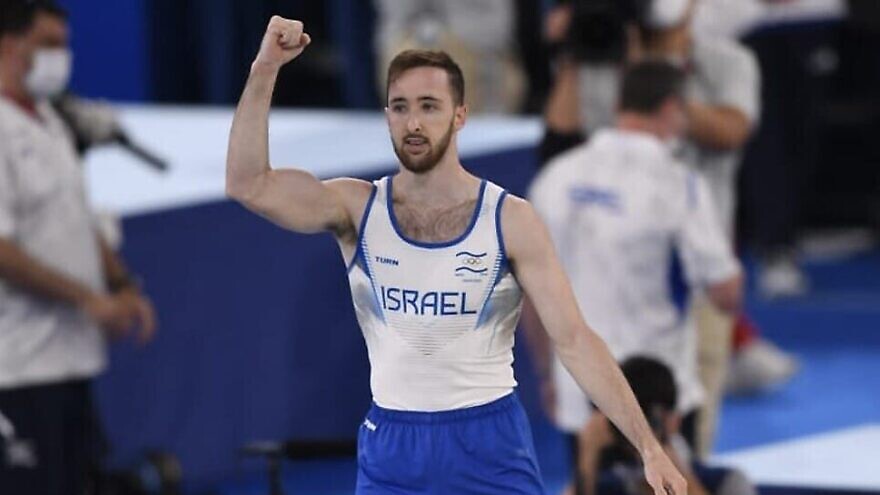It was an epic Olympic Games for Israel. The Jewish state’s team brought home a record four medals from the Tokyo Olympiad, including two that were gold. For a small country that, thanks to anti-Semitism and the hostility of much of the Arab and Islamic world, is considered worthy of extinction even in such distinguished venues as The New York Times, the international recognition that goes with these athletic triumphs is a very big deal.
Even those who couldn’t care less about gymnastics, taekwondo or judo need to see the Israeli medals as more than just a tribute to the individuals who won them. They’re also a stick in the eye of all those who want to wipe Israel off the map and view the sight of Israelis taking part in the games, let alone the scenes of the blue and white flag being raised while “Hatikvah” is played in Tokyo, as intolerable.
But the principle that Israel’s critics can twist any event, no matter how positive, into a public-relations black eye for the Jewish state still applied at this Olympics. The first of Israel’s two gold-medal winners—gymnast Artem Dolgopyat—served as a reminder not only of his country’s status as a growing power in the sport but also of its unfortunate lack of civil marriage.
As the medalist’s mother, Angela Bilan, put it: “Israel will claim my son’s Olympic gold but won’t let him marry here.”
While that sums up a complex legal and religious dilemma up a bit too simply, she’s right. The 24-year-old athlete made aliyah with his family 12 years ago from Belarus. They were eligible for citizenship immediately upon arrival because of the country’s law of return, which guarantees a home for anyone who had a Jewish grandparent, an apt rejoinder to the Nazi rule that all such persons were marked for death during the Holocaust. Since Artem’s father, Oleg, himself a gymnast, was Jewish, the whole family qualified.
That meant the future Olympian not only grew to maturity as a Hebrew-speaking citizen of the Jewish state but, like most Israelis other than the ultra-Orthodox or Arabs, who are exempt but also served in the Israel Defense Forces.
The problem, however, is that Artem’s mother is not Jewish. So while he has had a life indistinguishable from that of millions of other secular Israelis, the medalist was also not Jewish under halachah (religious law), which only recognizes those with Jewish mothers or certified converts as Jews. And since all life-cycle events for Jews, including marriage, are controlled by the Orthodox rabbinate under the country’s laws, he cannot be married to his Jewish fiancée in Israel.
Israel does recognize marriages or civil unions that take place elsewhere, so it is possible for Artem to simply go abroad to get hitched. But given his full schedule of training and competition (not to mention COVID-19 travel restrictions) in the last years leading up to the Olympics, he hasn’t yet gotten around to it—something that caused his mother, who divorced his father in 2012, to make a public issue out of this fact.
Israel’s detractors picked up on the story, and it provided a little more fodder for those who see the Jewish state as an oppressor always in the wrong.
Dolgopyat is hardly alone in facing this dilemma; an estimated 400,000 or more Israeli citizens are in the same boat. After 70-plus years of discrimination, intermarriage rates among Jews in the former Soviet Union were very high. The mass aliyah that began after the fall of the Communist empire brought with it many people eager to be Israelis, though lacking the religious bona fides to be listed as Jewish on their state ID card.
Since then, there have been some efforts to create an easier or at least more manageable conversion process that would provide a path to recognition of their Jewish identity for these Israeli citizens, especially the many who have served in the IDF. But every such effort has run aground on the intransigence of the rabbinate and their enablers in the religious political parties that have a disproportionate amount of clout in Israel’s dysfunctional political system.
It is possible to argue that a majority of Israelis would support instituting a form of civil marriage outside of the reach of the religious authorities. That’s an idea that is far more popular than efforts to promote religious pluralism and recognition of the Reform or Conservative movements of Judaism alongside the Orthodox, as many Diaspora Jews want. And there are plenty of members of the Knesset, including those in positions of power in the current government led by Prime Minister Naftali Bennett and Foreign Minister Yair Lapid, who would like to change a system that allows no separation between religion and state as we know it in the United States. Still, it isn’t likely to happen.
Part of the reason for that is electoral politics.
Bennett’s Yamina Party is a bastion for the Modern Orthodox with little love for the rabbinate now dominated by the ultras in black hats rather than the knitted kipahs worn by the prime minister and those who agree with him. But it’s unrealistic to expect Bennett to join with both left-wingers and secular Jews—like those in Avigdor Lieberman’s Israel Beiteinu Party, which champions the cause of Russians like Dolgopyat’s. Lapid and others in the government say they wanted to push civil marriage as a result of the Olympic controversy. But Bennett was conspicuously silent. The same was true of his chief antagonist, former Prime Minister Benjamin Netanyahu, who is himself secular and gets the votes of many non-religious Israelis, but who knows his only path to power will come via his alliance with the ultra-Orthodox.
The religious parties and their supporters claim that junking Israel’s existing system that subsidizes and empowers recognized religious faiths, and especially Orthodox Judaism, would undermine the Jewish state’s identity. They also believe that creating a quick and easy method for converting Russians and others who live according to the Jewish calendar and are willing to lay down their lives for Israel would undermine both faith and Jewish peoplehood.
That’s a weak argument. The rabbinate’s stranglehold on religious identity has brought nothing but discredit to Judaism in the eyes of most Israelis, no matter how observant they might be. Indeed, one need only look to the United States, where there has never been a state religion, to see how removing government from faith has created a population that is far more religious than in those countries where there has been one, including some in Europe, where state religions either once predominated or, as in Great Britain, still exist.
Giving Israelis an option for civil marriage would actually eliminate or at least diminish the power of the institution that brings the most disrepute to Jewish faith, as well as annoyance with its official standard-bearers.
But like a lot of elements that are essentially grandfathered into the system that empowers the Orthodox (like the composition of the Knesset being decided by proportional representation), ditching this unhealthy intermingling of state and religion is simply too heavy a lift for political parties that have other priorities. And chipping away at it via an activist Israeli Supreme Court that thinks it ought to have the power to legislate as well as to enforce existing laws isn’t likely to create a result that will be accepted.
That leaves Israelis like Dolgopyat in an uncomfortable situation and gives the Jewish state’s detractors another issue with which to flay it. While advocacy for change is entirely justified, we ought never to lose sight of the fact that for all of its imperfections and problems, the purpose of a Jewish state was to provide a haven to people like the medalist and his family who needed to get out of countries where Jews either have no future or face various degrees of oppression. If, despite the opinion of the rabbinate about his Jewish identity, Artem Dolgopyat still considers himself a proud Israeli, that ought to signal to the rest of us not to take this admittedly difficult issue out of context and allow it to be used as one more pretext for anti-Semites who would gladly place both halachic Jews and those whose claims to Jewish identity are disputed in peril.


























